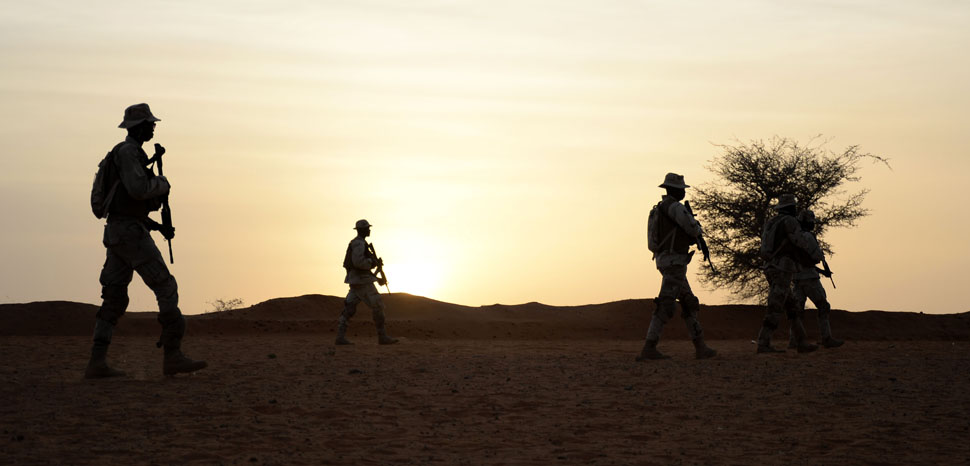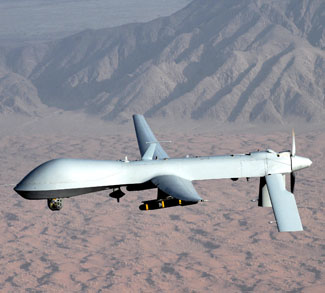Citizens of Chad can now legally enter the United States after President Trump lifted the travel restrictions last week. Ending the travel ban on Chad came just as suddenly as the African nation’s inclusion on the list six months ago. The reason for the reversal is straightforward: Trump has no discernible reason to push the country away, and every reason to strengthen the partnership between the U.S. and Chad.
While many Americans would struggle to find Chad on a map, the country has a security relationship with the U.S. going back to the 1980s, when the U.S. and France supported it against Ghaddafi’s Libya. The relationship flagged a bit as Chad went through a succession of civil conflicts, but Chad became a key U.S. partner again after the fall of Ghaddafi’s regime in 2011, when jihadi terrorist groups began to proliferate in nearby Mali, Niger, and Burkina Faso. Chad’s willingness to deploy soldiers against Boko Haram in Nigeria and Al-Qaeda and ISIS-aligned jihadi groups across the Sahel region earned it significant goodwill from the United States. In early 2017, Chad was one of 24 African Nations invited to the US-sponsored “Flintlock” military exercises in Morocco.
Given the amicable relationship between the countries, it is unclear how Chad found itself on Trump’s revised travel ban in the first place. The announcement confused regional experts and the general public alike, especially since the Presidential proclamation began by affirming Chad’s vital role as U.S. partner and expressing the desire to deepen cooperation. Chadian officials released multiple statements criticizing the move, which they called “incomprehensible.” Many commentators struggled to find a compelling reason to put Chad on a list that included North Korea, Iran, and Syria. Some suggested that it may have been related to Chad’s attempt to levy a USD 24 billion fine on Exxon Mobil over a tax dispute, but the case was settled months before the travel ban was issued.
The official reasons given for the ban were that Chad had not been sharing enough travel information with the U.S. Department of Homeland Security, and that there had been an uptick in regional terrorist activity. The first reason stemmed from a failure of Chadian officials to share samples of their new passports with DHS, something the Chadians quickly rectified. As for the uptick in terrorist attacks, Chad is much less affected by terrorism than its neighbors who are not subject to the travel ban. More curious still, the inclusion of Chad on the travel ban list was accompanied by the lifting of travel restrictions on neighboring Sudan, the one-time home of Osama Bin Laden that has been listed as a State Sponsor of Terrorism since 1993.
Chad’s president, Idriss Déby, is a leader secular and obscure enough for the U.S. to partner with without having to face the political backlash of working with a regime responsible for a series of human rights abuses since Déby’s rise to power in 1990. The deaths of four American soldiers in Niger last year prompted questions about U.S. military engagement in Africa, but few have criticized the U.S. for working with dictators like Déby. If the administration is willing to find a partner in Sudan’s Omar al-Bashir, whose actions in Darfur are as publicized as they are reprehensible, then there is little justification for not working with the more-reliable Déby.
The travel ban had almost immediate consequences for the war against jihadi groups in Africa. Following the ban, Chad withdrew hundreds of troops from Niger, where they had been fighting Boko Haram. While the 2014 drop in oil prices was making it difficult to finance the deployment, most noted that the date of the withdrawal was close to when the travel ban was to come into effect. Chadian officials were coy about the specific reason for the withdrawal, but continued to criticize the travel ban separately. Meanwhile, the State Department and Pentagon both lobbied to take Chad off the list, worried about further damage to the U.S.-Chadian relationship.
Finally, several months later, the U.S. administration has rescinded the travel ban on Chad, citing improvements in the information-sharing policies they’d claimed were a factor. Whether the Trump administration’s concerns were based on genuine issues or a politically expedient way to diversify the president’s controversial travel-ban policy, Chad has proven itself too useful to be antagonized. Chad has deployed some 2,000 troops to fight Boko Haram in the south, 1,500 soldiers and policemen as part of the G5 Joint Sahel Mission, and contributes a large number of personnel to the UN peacekeeping mission in Mali, despite Chadian forces having suffered a large percentage of the mission’s casualties.
Chad is irreplaceable as a regional partner. While the U.S. is also strengthening its partnership with neighboring Niger, the Nigerien armed forces are not considered as reliable as the Chadians, and the partnership has mostly taken the form of constructing drone bases for counterterrorism operations in the Sahel and Libya. At a time when American military advisers in the region are moving off the front lines, local forces are needed now more than ever.
Chad has been a reliable partner for the U.S., and the lynchpin of its counterterrorism strategy in the region. Trump’s travel ban jeopardized that relationship, and the fight against terror in Africa is stronger now that it has been rescinded. The conflict in the region is still far from over, however, and the U.S. will need every ally it can get if it wants to see an end to instability in the Sahel anytime soon.
The opinions, beliefs, and viewpoints expressed by the authors are theirs alone and don’t reflect any official position of Geopoliticalmonitor.com.




